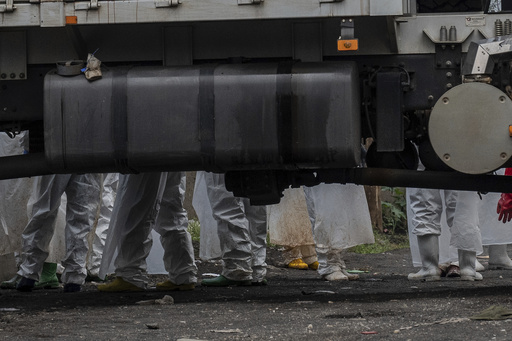
GOMA, Congo — In a move aimed at alleviating the humanitarian crisis in eastern Congo, the Rwanda-backed M23 rebels announced a unilateral ceasefire on Monday, set to commence on Tuesday. This decision follows urgent calls for the establishment of safe passage for aid, as well as growing concerns for the welfare of the hundreds of thousands of individuals displaced by recent violence.
The declaration of the ceasefire follows the concerning assessment by the U.N. health agency, which reported that at least 900 individuals lost their lives due to the recent clashes in Goma between the M23 rebels and Congolese military forces. Goma, home to approximately 2 million residents, sits in a region rich in mineral resources and remains under the control of the M23. Reports indicate that the rebels have been making advances in other areas of eastern Congo, moving towards another provincial capital, Bukavu.
Despite their advances, M23 representatives clarified on Monday that they do not plan to take control of Bukavu. However, the group had previously expressed ambitions to reach Congo’s capital, Kinshasa, located a thousand miles away. “We want to emphasize that we have no intentions of capturing Bukavu or other regions. Our ongoing commitment is to safeguard the civilian population while maintaining our strategic positions,” stated M23 spokesman Lawrence Kanyuka.
The Congolese government has yet to respond to this latest announcement from the rebels. The timing coincides with an upcoming summit involving regional leaders from southern and eastern Africa, who have called for a cessation of hostilities. Kenyan President William Ruto announced that both the presidents of Rwanda and Congo would participate in the discussions.
Meanwhile, foreign ministers from the Group of Seven (G7) nations urged all parties engaged in the conflict to return to negotiations, emphasizing in a statement on Monday the need for “safe, rapid, and unhindered transit of humanitarian assistance for affected civilians.” Congolese officials have expressed their willingness to engage in dialogue to settle the dispute but insist that discussions must adhere to existing peace agreements. In contrast, both Rwanda and the M23 have accused the Congo government of failing to honor past agreements.
According to U.N. experts, the M23 insurgents are bolstered by around 4,000 troops from Rwanda— a significant increase compared to 2012, when they first briefly controlled Goma and withdrew under international pressure. The M23 is recognized as one of the most formidable armed groups among the over 100 competing factions for authority in the eastern part of Congo, a region rich in minerals essential to global technology.
The latest escalation of violence has once again displaced countless individuals, forcing many who had already suffered years of conflict to abandon whatever belongings they could carry and flee to safety. Thousands have crossed into neighboring Rwanda in search of refuge.
The ongoing turmoil is deeply rooted in longstanding ethnic tensions. The M23 asserts that it is defending the rights of ethnic Tutsis in Congo, while Rwanda claims that Tutsis face persecution at the hands of Hutus and remnants of militias involved in the 1994 genocide that resulted in the deaths of approximately 800,000 Tutsis and others. Consequently, many Hutus escaped to Congo after the genocide, forming the Democratic Forces for the Liberation of Rwanda militia, a group that Rwanda now claims is fully integrated into the Congolese military—a charge that the Congolese authorities deny.
On Monday, grief-stricken families gathered at morgues in Goma, desperately searching for their loved ones as body bags were prepared for transportation to gravesites. Among those mourning was Chiza Nyenyezi, who tearfully recounted the tragedy of her son’s gunshot wound, which had left his chest severely injured. “His entire chest was open,” she lamented. Another mother, Louise Shalukoma, shared the heartbreaking ordeal of failing to recover her son’s body after a bomb exploded near where it lay. “My God, my fourth child, when I saw that he was dead I said, ‘Lord, what am I going to do?’” she mourned. “This M23 war came for me in Goma.”

